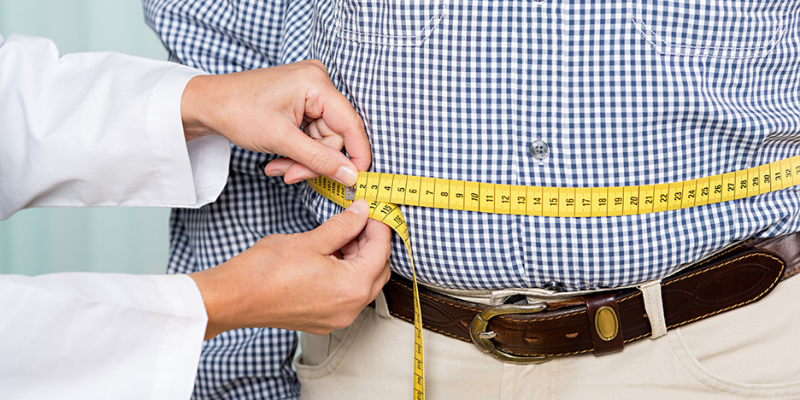Weight Loss Surgery Recovery Time
If you’re about to have weight-loss surgery, you’re likely looking forward to the weight loss surgery recovery time. If you stick with it, you’ll shed a lot of pounds. Having a weight-related medical problem, such as diabetes or sleep apnea, may improve. And 95% of those who have weight reduction surgery report an improvement in their overall quality of life.
Make sure you know what you’ll need to do to make the changes last and prepare for the recovery. Ask your doctor what to expect from the procedure. Your current weight and the type of surgery you have might play a role. In recent years, sleeve gastrectomy has become increasingly popular as a means of reducing weight. Patients who have sleeve gastrectomy experience a 40 percent weight loss.
A typical gastric bypass patient loses 60% of their excess weight. The use of a gastric band as a weight reduction procedure is declining. Many people’s weight loss fluctuates over months, going down, then leveling off, and then going down again. This is common. You may continue to lose weight for up to two or three years following surgery, depending on the technique.
What Should You Do During Weight Loss Surgery Recovery Time?
The majority of gastric bypass surgeries are performed laparoscopically, which means that only minor incisions are made. As a result, you’ll have less time to recuperate. Most patients are in the hospital for two to three days before returning to work or school in three to five weeks. It takes longer to recuperate after an “open” operation, which means the physician needs to create a wider incision. Weight loss surgery can cause both short-term and long-term consequences. The long-term dangers of surgery differ depending on its nature. More than a third of patients encounter some form of problem. Most people experience minor issues. If you are concerned about any health issues, make an appointment with your doctor.
Weight loss surgery often results in constipation. It’s up to your doctor to tell you what to do. To avoid blockages, do not take granular fiber (Metamucil or Psyllium).
After weight reduction surgery, high-sugar meals can cause dumping syndrome. In many cases, sodas or fruit juices are the culprits. Sugary foods can trigger nausea, vomiting, and exhaustion when they rush through the digestive system. When you lose a lot of weight rapidly, gallstones are prevalent. Gastric bypass surgery can cause gallstones in up to 50% of patients, however, they are typically not harmful. Gallstones can occasionally induce nausea, vomiting, and abdominal discomfort. The gallbladder is removed in about 15 to 25 percent of patients who have gastric bypass surgery.
Up to three weeks following surgery, there is a risk of wound infection. The surgical site may become inflamed, heated, painful, or develop a large amount of viscous discharge (pus). Infections of the skin necessitate the use of medicines and, in certain cases, surgery.
Possible Side Effects During Weight Loss Surgery Recovery Time
Among the more serious adverse effects are: Stool bleeding, which can be crimson or black, which is a dangerous condition. Immediately notify your doctor or go to the emergency department. It is extremely unusual for blood clots to form in the lungs. Life-threatening consequences can result from them. Blood clots, on the other hand, can be avoided with the use of blood-thinning medications and regular exercise.
There are very few, but substantial, leaks in the new connections created after weight loss surgery. As a rule, they begin to appear within a week following the procedure. If you’re experiencing any of these symptoms, you should see a doctor right once. Sagging skin is another thing to look out for. Surgery may be required to remove it.
Tips To Get A Healthy Lifestyle After Weight Loss Surgery
Weight reduction surgery can yield tremendous effects. To keep the pounds off, you’ll need to make lifestyle adjustments in addition to your diet. Consume modest, frequent meals to maintain a healthy weight and weight loss. Weight loss surgery creates a tiny stomach that can only store so much food. Large meals might lead to health issues. There is a high prevalence of binge eating among those who are overweight or obese. It might be difficult to get used to eating smaller meals. Drinking during meals is normally discouraged by doctors because it might cause your stomach to expel food too rapidly, causing you to feel less full.
Make a conscious effort to eat healthfully. The best way to ensure that you are getting all the nutrients you need is to consult with a nutritionist.
It aids in weight loss maintenance and is typically made simpler following weight loss surgery because of the positive impact weight reduction has had on joints. If you’ve never done any exercise before, start slowly and progressively increase the difficulty. Consult your physician for advice on how to get started. Working with a physical therapist or trainer may also be beneficial. Before and after weight reduction surgery, several weight loss surgery facilities provide programs to assist patients in adopting a better lifestyle.
How To Keep Your Body Weight Consistent?
Bariatric surgery may lead to significant weight reduction and the eradication of potentially dangerous diseases like sleep apnea, as well as dramatic improvements in physical and psychological well-being for patients. However, if you want to reap the long-term rewards, you’ll need to put in the time and effort.
Patients who have undergone bariatric surgery should eat modest, frequent meals since their stomachs can only take a little amount of food at a time following the procedure. Larger meals or binge eating can cause discomfort in the digestive system and undermine some of the success that has been accomplished in terms of weight loss.
After surgery, patients should meet with a dietitian to come up with a personalized food plan that is tailored to their specific needs. Because weight reduction surgery can create nutrient shortages including iron, folate, and calcium deficiency, it is equally crucial that patients focus on acquiring all the vitamins and minerals they require.
Keeping the weight off and boosting a patient’s desire to improve their lifestyle are just two of the many benefits of regular exercise. After surgery, many patients report that they like working out more since it is so much simpler than it was before. Additionally, losing weight might help decrease joint discomfort, making it possible to participate in more physical activities
Is Weight Loss Surgery for 50 Pounds Overweight Recommended?
Weight loss surgery is a significant decision and should not be taken lightly. It is essential to weigh the potential risks and benefits of undergoing such a procedure before making any decisions. Nevertheless, weight loss surgery for 50 pounds overweight patients is an effective and often necessary option. After the surgery, it will take time for your body to heal and adjust to the changes.

Consulting with a doctor or nutritionist may help individuals determine whether they are suitable candidates for different types of weight loss surgery. Furthermore, it’s essential to consider the potential lifestyle changes that come with weight loss, including dietary adjustments, regular exercise, and emotional support. These lifestyle modifications can play a vital role in helping an individual reach their desired weight-loss goals safely and effectively. Ultimately, following the advice of healthcare professionals is the best way to ensure that bariatric weight loss surgery is right for you.

Once individuals have decided to pursue weight loss surgery for 50 pounds, they must work closely with their doctor throughout the process to ensure their safety and positive outcomes from the procedure. This includes following all pre-operative and post-operative instructions regarding physical activity levels, diet plans, medication use, and other aspects of recovery.


